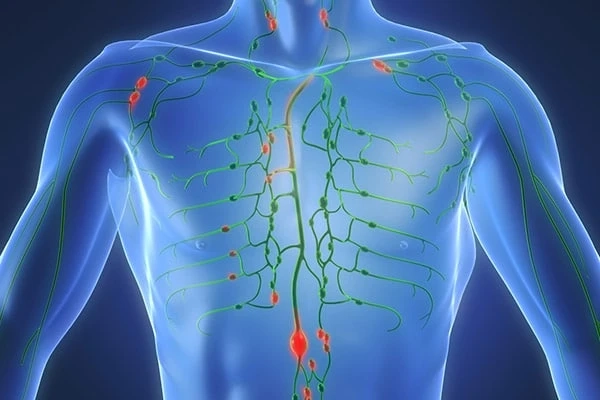Follicular Lymphoma is the most frequent indolent (slow-growing) kind of non-Hodgkin lymphoma(NHL), accounting for a little over 10% of all B-cell NHLs.Enlargement of lymph nodes in the neck, underarms, abdomen, or groin, as well as weariness, are common FL symptoms. Typically, patients with FL have no outward signs or symptoms at the time of diagnosis, presenting solely with an enlarged lymph node on physical examination or discovered by chance on an imaging investigation. Some FL patients may develop transformed lymphoma, which is often more severe and necessitates more aggressive Follicular Lymphoma Treatment options.
Treatments: Early Stages
If the tumors are tiny, radiation therapy is the primary treatment option. It might even be able to cure your lymphoma. If you do have any symptoms, watchful waiting may be a better option. You and your doctor keep a tight eye on your cancer to see if it spreads, but you decide not to treat it. If you have stage II follicular lymphoma with bulky or bigger tumors, a monoclonal antibody, such as obinutuzumab (Gazyva) or rituximab (Rituxan), may be used in combination with chemotherapy to treat it. You may then have radiation therapy, depending on which lymph nodes are damaged.
Follicular Lymphoma Treatment: Advanced Stages
Chemotherapy will be used to shrink or slow your cancer in stages III and IV. CHOP(cyclophosphamide, doxorubicin, vincristine, and prednisolone) or bendamustine (cyclophosphamide, doxorubicin, vincristine, and prednisolone) or bendamustine (cyclophosphamide, doxorubicin, vincristine, and prednisone Often, rituximab will be added as well. The CVP medication combination (cyclophosphamide, vincristine, and prednisone) plus rituximab is another option.
Other treatment:
You can also combine rituximab with medications like chlorambucil(Leukeran) or lenalidomide for advanced follicular lymphoma(Revlimid). Chemotherapy coupled with obinutuzumab is a treatment option for certain people. Rituximab alone can be used to treat slow-growing or low-mass cancers.
MaintenanceTherapy :
After your lymphoma has shrunk with chemo, you'll need maintenance therapy to keep it from returning. Rituximab or obinutuzumab is usually given once every two months for up to two years. One of the medications can also be combined with radiation. Another alternative is a stem cell transplant utilizing your own cells.
Your cancer may relapse (come back) or be refractory (resistant to treatment) (not respond to chemo). Treatment options, in this case, include obinutuzumab and rituximab. Copanlisib, idelalisib, and lenalidomide are examples of targeted medications. In addition to chemo, your doctor may recommend radioimmunotherapy (radiation mixed with cancer antibodies) or a stem cell transplant.
CART-cell Therapy :
This is one of the newest medicines for follicular lymphoma that has relapsed or become resistant to other treatments. If you've already tried two chemotherapies and they haven't helped, your doctor may suggest it. It genetically changes T cells, which are immune cells, to add a chimeric antigen receptor (CAR). This improves their ability to locate and destroy cancer.


